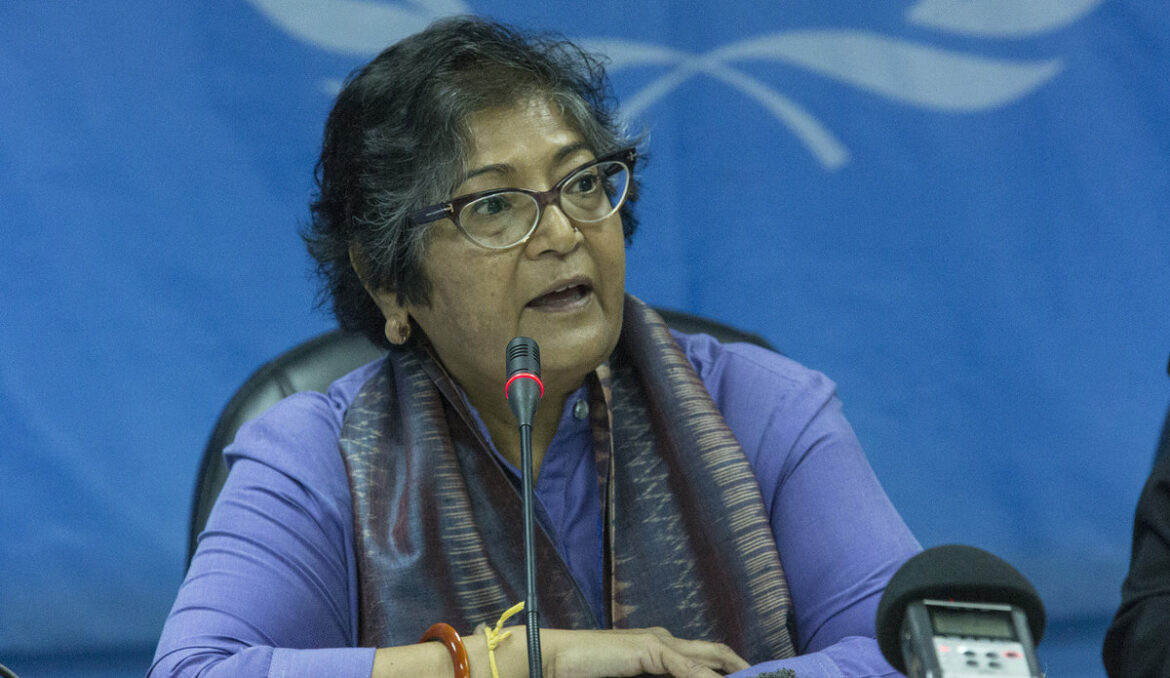Guya Scopas Bethuel
Rampant corruption and predatory governance by South Sudan’s political elites are fueling a deepening human rights crisis in the country, according to a damning new report by the United Nations Commission on Human Rights in South Sudan.
The report, titled “Plundering a Nation: How Rampant Corruption Unleashed a Human Rights Crisis in South Sudan,” is the result of two years of investigations. It accuses government officials of siphoning off billions of dollars in oil and non-oil revenues through opaque off-budget schemes and politically connected contracts, while millions of citizens are left without basic services.
“Corruption is not incidental, it is the engine of South Sudan’s decline,” said Yasmin Sooka, Chairperson of the Commission, at the report’s launch in Nairobi. “It is driving hunger, collapsing health systems, and causing preventable deaths, as well as fuelling deadly armed conflict over resources.”
According to the Commission, South Sudan has earned more than $25.2 billion in oil revenues since independence in 2011, but little of it has reached essential public services. Instead, education, health, and justice systems are in crisis, with civil servants often unpaid and international donors shouldering the bulk of service delivery. The country now ranks at the bottom of both the UN Human Development Index and Transparency International’s Corruption Perceptions Index.
The report highlights stark disparities in government spending. Between 2020 and 2024, the Ministry of Presidential Affairs overspent its budget by nearly six times, at $557 million, while key social ministries were severely underfunded. The Ministry of Health received only 19 percent of its allocation, agriculture just 7 percent, and the Ministry of Gender and Social Welfare less than $4 million over four years.
“These diversions translate into preventable deaths, widespread malnutrition, and mass exclusion from education,” said Commissioner Carlos Castresana Fernández. “Funds go to patronage and private pockets, not medicine, clean water, or schools.”
The report also implicates senior officials in major corruption scandals, including the controversial “Oil for Roads” programme, which allegedly diverted $2.2 billion into political patronage networks, with little infrastructure delivered. Vice President Benjamin Bol Mel, whose companies were central to the scheme, is singled out. Non-oil revenue schemes run by private contractors, such as Crawford Capital Ltd, are also accused of diverting taxes while obstructing humanitarian aid operations.
The Commission warned that the political transition outlined in the 2018 Revitalized Peace Agreement is at risk. Recent political upheaval, including the detention of First Vice President Riek Machar and the appointment of relatives of senior officials to top government posts, has further undermined prospects for reform.
“South Sudan’s leaders must end the systemic plunder and impunity,” Sooka said. “When public revenue becomes private fortune, peace cannot hold.”
The report issued 54 recommendations urging the Government to end impunity for corruption, implement fiscal reforms promised under the peace agreement, and prioritize citizens’ basic needs in public spending.
The Commission emphasized that corruption’s devastating impacts constitute violations of international law and South Sudan’s obligations under treaties such as the UN International Covenant on Economic, Social and Cultural Rights.
The report was launched at a press conference in Nairobi and will be presented to the UN Human Rights Council in Geneva.



